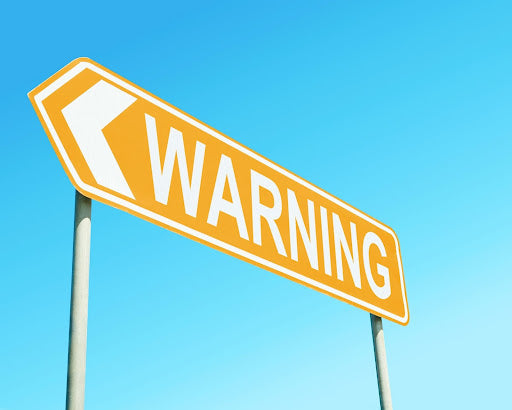There’s nothing worse than poor quality sleep. It leaves you tired, lethargic, moody, and sometimes you may even feel under the weather. But how do you know if a health problem or environmental factors cause your poor quality sleep? If you are constantly feeling unrest, even after a full night’s sleep, it may signify something larger than obstructive sleep apnea.
Because sleep apnea often goes unnoticed by the individual, it’s important to be aware of the common warning signs so you can pinpoint if you or a loved one is suffering from the sleep disorder. Getting the necessary treatment will improve your quality of sleep and reduce the risk of serious health problems like heart disease, hypertension, stroke, and more. To enable you with the knowledge you need, ApneaMed has put together a quick list of warning signs indicating you may have sleep apnea.
What Is Sleep Apnea?
Obstructive sleep apnea is a sleep disorder that causes an individual to stop breathing throughout the night, most often resulting in them gasping or choking for air. This happens because their soft palate collapses, blocking their airway and making it difficult for air to get through to their lungs. The cessation of breathing can last anywhere from a few seconds to a few minutes and occurs repeatedly throughout the night.
Most individuals don’t realize they are choking or stop breathing in their sleep. Instead, they feel unrested even after receiving a full night’s sleep. In many instances, the patient’s partner is the first to notice any telltale signs of a sleep disorder because their partner’s choking or snoring awakens them.
When left untreated, sleep apnea puts the patient at risk for other life-threatening conditions such as stroke, diabetes, and heart disease which is why it’s essential to undergo a sleep study if you suspect you have sleep apnea.
Common Indicators of Sleep Apnea
Do you suspect that you or a partner is suffering from obstructive sleep apnea? If so, look out for these indicators of sleep apnea.
Snoring
Although snoring can be caused by a variety of factors, including large tonsils, congestion, alcohol, sleeping position, pregnancy, and more, it is also a common symptom of sleep apnea. Because sleep apnea causes the individual to stop breathing during their sleep, the individual often makes noises while attempting to reopen their airway.
While these noises may be gasping for air or choking, the most common noise is snoring. If your loved ones are constantly complaining about your snoring habits, it may be an indication that your airway is obstructed due to the tissues collapsing in your throat and blocking your airway.
Movement
Sometimes it may take you a little while to fall asleep at night. While trying to fall into a slumber, you might find yourself tossing and turning. But did you realize that you may also be moving in your sleep? You may subconsciously be moving into new sleeping positions throughout the night to keep your airway open. If your partner regularly points out that you move a lot in your sleep or you wake up in a completely different position than you started in, there may be a reason behind the madness.
Headaches
Sleep apnea causes you to experience numerous breathing disruptions while sleeping that are caused by an obstruction in your airway. When this blockage occurs, air can become trapped in your lungs which causes an influx of carbon dioxide to enter your bloodstream. As a result, the vessels in your brain dilate and may cause you to wake up with a painful headache. You’ll notice a bit of relief as the vessels in the brain begin contracting.
Fatigue
One of the biggest indicators of sleep apnea is feeling lethargic and completely unrested during the day, even after getting a full night’s sleep. The constant breathing disruptions throughout the night cause poor sleep quality, and over time, this poor sleep quality can negatively impact your mood and energy levels.
Schedule a Sleep Apnea Test with ApneaMed
If you’re having difficulty getting a good night’s rest, it’s time to consider getting tested for sleep apnea. For a convenient and affordable option, ApneaMed offers a home sleep study that can be self-administered in the comfort of your own home — saving you both time and money.
ApneaMed offers various home sleep tests and in-home breathing equipment to help you treat your obstructive sleep apnea. Contact our team to learn more.

